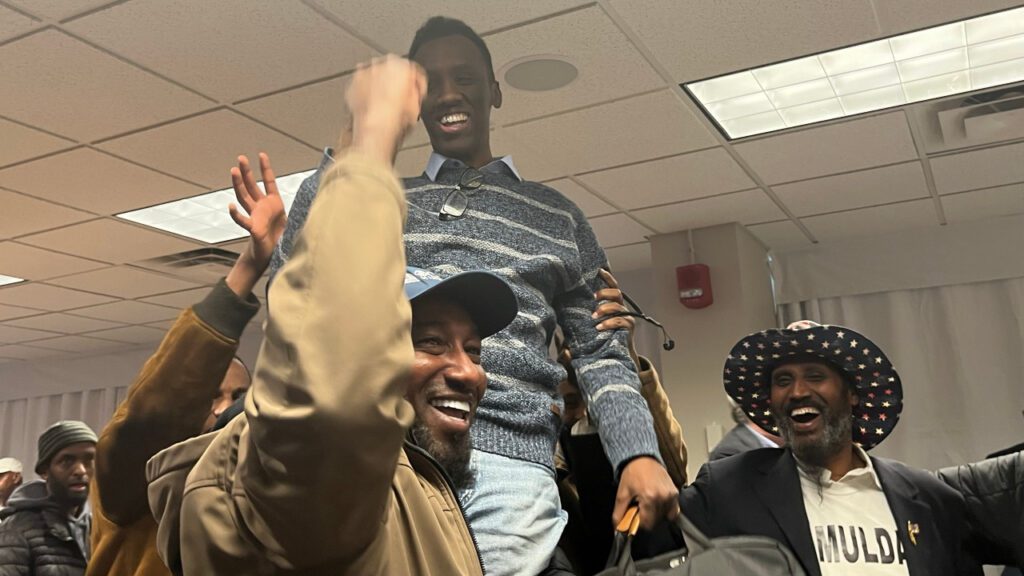Minneapolis council approves rideshare ordinance, mayor says he’ll veto it
The Minneapolis City Council has voted to approve a measure that would set minimum pay requirements for rideshare drivers in the city, setting up an expected veto from the mayor and council vote to override him.
The council’s vote at Thursday’s meeting was 9-4, with council members Michael Rainville, LaTrisha Vetaw, Emily Koski and Linea Palmisano voting against it.
The two major rideshare companies, Uber and Lyft, have threatened to stop providing service in Minneapolis if the ordinance is enacted.
On Wednesday, Minneapolis Mayor Jacob Frey urged the council to pump the brakes and dial back the ordinance a bit. While some council members expressed reservations and recommended a delay, noting a state report is expected possibly as soon as Friday, more spoke in support of passing the measure now.
Council member Jamal Osman acknowledged the council has heard residents express fear of Uber and Lyft leaving but posed a question during Thursday’s meeting. “Is it OK to use the cheap labor immigrant community? We care about the disability community, we care about low-income families that use rideshare but I’m sure they’re not OK using cheap labor,” Osman said.
He added, “That fear of we gotta pull out or let us use cheap immigrant labor, that doesn’t make it OK no matter who you are.”
“It’s not OK to impose inequitable labor on anyone here, and no one gets a raise if our (transport network companies) leave the city of Minneapolis,” Palmisano said, adding, “This City Council is literally taking away jobs altogether if everybody is putting all their information honestly and earnestly on the table.”
Council member Robin Wonsley responded, “We have the opportunity to take action today. … We should proceed with that and rip the Band-Aid off. Just do it.”

As written, the ordinance would set a $5 minimum per trip, require 80% of canceled ride fees to be paid to drivers, and set driver pay rates at $1.40 per mile and 51 cents per minute. The council did approve an amendment to push its effective date back from April 1 to May 1 to allow for the companies to adjust and any other rideshare organizations with interest to get set up to provide service in the city.
Frey has said he plans to veto the ordinance, and at least nine council members would need to vote to override his veto in order for it to take effect. The official act isn’t expected to be ready for the mayor to veto until Friday.
The mayor vetoed a similar measure approved by the council last summer. State lawmakers are also expected to discuss a rideshare bill this spring after the governor created a task force last year to help construct legislation.
Frey also released a statement after the vote, saying, “The statewide report is literally going to be released tomorrow. It’s irresponsible to pass policy today when we’ll have the data tomorrow.”
Uber and Lyft both released statements following the council’s vote Thursday, saying they support minimum pay legislation for rideshare drivers but won’t be able to operate in Minneapolis if the ordinance takes effect.
“We support a minimum earnings standard for drivers, but it must be done in a way that allows the service to sustainably and affordably operate for riders,” Lyft said. “For the second time in less than a year, the bill-sponsors have willfully chosen to ignore offers to collaborate, instead choosing to rush through the most extreme figures possible. We implore Mayor Frey to veto this legislation and instead join our efforts to pass a statewide minimum earnings standard that can balance the needs of all. Otherwise, we will no longer be able to operate in the city once the bill takes effect on May 1.”
“Uber supports comprehensive statewide legislation that guarantees drivers $35/hr minimum earnings while working and protects their flexibility and independence. If this ordinance is enacted, we look forward to working with drivers, riders and the legislature to bring rideshare back,” Uber added.